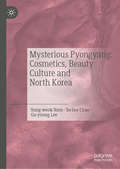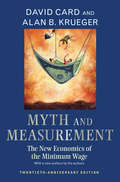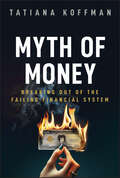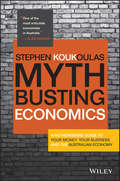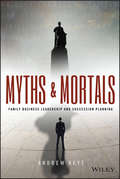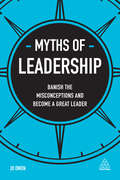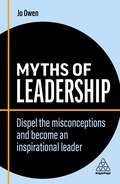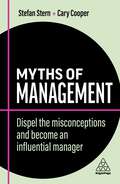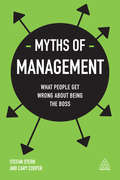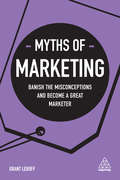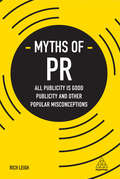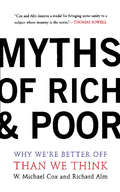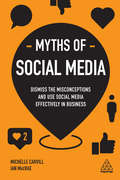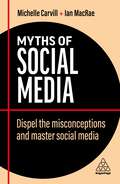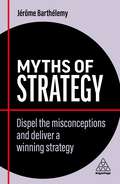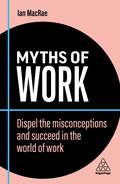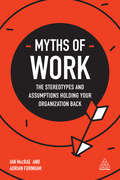- Table View
- List View
Mylestone: Can Multiple Pivots Preserve the Life of a Death Tech Startup?
by Shikhar Ghosh Marilyn Morgan WestnerDave Balter and Jim Myers co-founded Mylestone, a death tech startup that applied technology to transform how grieving people memorialize the dead. The startup addressed a cultural problem and promised to solve a pressing need in the antiquated, multi-billion dollar death industry. But despite a well-defined market and positive response to the idea, Mylestone made little headway in the funeral industry during its first eighteen months. In response to a series of obstacles, the company made a number of pivots. All startups pivot. But recent changes felt more fundamental. The company had moved away from its initial purpose, business model, and early team. Now, user demand suggested the startup should pivot again, away from death tech to produce custom photo books. The company had pivoted so much already that it barely resembled the venture they founded. Had they pivoted to an entirely new business? With each major change, the passion both founders felt when they started Mylsteone waned. Did they want to continue leading the company in the new direction? Balter believed that the new direction would limit the startup's growth capacity and, to complicate matters further, Balter and Myers recently discovered a mutual interest in cryptocurrency. They started a side project in crypto trading that showed signs of taking off in a way Mylestone never would. If they harbored doubts about Mylestone, should they inform investors, close the company, and focus their energy on founding a venture based on their side project? What legal and ethical obligations did they have to Mylestone's investors and employees?
Mysterious Pyongyang: Cosmetics, Beauty Culture and North Korea
by Nam Sung-wook Chae Su-lan Lee Ga-youngThis book is written with the belief that the peaceful unification of Korean Peninsula will be upon us on the day that every woman in North Korea uses South Korean and global cosmetics. The authors focus on understanding the intentions behind the three leaders of North Korea, Kim Il-sung, Kim Jong-il and Kim Jong-un, based on their comments on the cosmetics industry and their field guidance tendencies, analyzing the governance style of Pyongyang through women’s life and beauty culture. It is the earliest book of its kind in the women’s life and beauty culture of North Korea.
Myth and Measurement
by Alan B. Krueger David CardDavid Card and Alan B. Krueger have already made national news with their pathbreaking research on the minimum wage. Here they present a powerful new challenge to the conventional view that higher minimum wages reduce jobs for low-wage workers. In a work that has important implications for public policy as well as for the direction of economic research, the authors put standard economic theory to the test, using data from a series of recent episodes, including the 1992 increase in New Jersey's minimum wage, the 1988 rise in California's minimum wage, and the 1990-91 increases in the federal minimum wage. In each case they present a battery of evidence showing that increases in the minimum wage lead to increases in pay, but no loss in jobs. A distinctive feature of Card and Krueger's research is the use of empirical methods borrowed from the natural sciences, including comparisons between the "treatment" and "control" groups formed when the minimum wage rises for some workers but not for others. In addition, the authors critically reexamine the previous literature on the minimum wage and find that it, too, lacks support for the claim that a higher minimum wage cuts jobs. Finally, the effects of the minimum wage on family earnings, poverty outcomes, and the stock market valuation of low-wage employers are documented. Overall, this book calls into question the standard model of the labor market that has dominated economists' thinking on the minimum wage. In addition, it will shift the terms of the debate on the minimum wage in Washington and in state legislatures throughout the country.With a new preface discussing new data, Myth and Measurement continues to shift the terms of the debate on the minimum wage.
Myth of Money: Breaking Out of the Failing Financial System
by Tatiana KoffmanIn Myth of Money: Breaking Out of the Failing Financial System, renowned finance, crypto, and economics thought leader Tatiana Koffman delivers an insightful and informative take on the past, present, and future of money, and the rise of cryptocurrencies as a transformative force in the financial world. Koffman has witnessed multiple financial collapses firsthand—beginning with the fall of the USSR, when her family lost everything, followed by the subprime mortgage crisis that marked the start of her new career, and then the economic fallout of COVID-19. As Bitcoin gains its footing globally, she has observed its meteoric rise and catastrophic falls with a keen understanding that these are early steps of a system poised to redefine finance. Navigating her way from traditional finance and into the realms of venture capital, crypto, and digital assets, as she writes about fintech, Koffman's journey takes us from Eastern Europe to Canada, to Bitcoin Beach in El Salvador, to Lebanon, Dubai, Africa, Necker Island, and back to the States. Along the way, she shares hard-earned lessons about the myths surrounding money, even those emerging in the new digital era. Throughout the book, her stories are paired with clear explanations and discussions of technical aspects of finance, in her trademark voice of clarity, incisively cutting to the core of complex topics in a relatable and easy-to-digest manner. Koffman's unique perspective, drawn from her global experience and deep understanding of economic upheavals, makes Myth of Money an essential read for anyone interested in the future of finance and the potential of cryptocurrency to take the place of a system we can no longer rely on to create and safeguard wealth.
Myth of the Social Volcano
by Martin WhyteWhyte (sociology, Harvard U. ) examines how ordinary Chinese citizens weight the balance between a booming economy and rising inequality as they evaluate the social order. He suggests that given the changes from socialist to market economy and from modest to sizeable income gaps, people's attitude may well effect China's future political stability. Among his topics are China's post-socialist transition and rising inequality, what Chinese citizens see as fair and unfair about current inequalities, preferences for equality and inequality, and views of stratification and class conflict. His detailed survey data show that gleeful predictions that an angry populace is on the verge of overthrowing the state are just wishful thinking. Annotation ©2010 Book News, Inc. , Portland, OR (booknews. com)
Myth of the Top Management Team
by Jon R. KatzenbachCompanies all across the economic spectrum are making use of teams, but many senior executives and CEOs have become frustrated in their efforts to create teams at the top. Too often, they see few gains in performance from their efforts to be more teamlike. And they recognize that the rest of the organization knows that the senior group doesn't really work together as a team. Nevertheless, a team effort at the top can be essential to capturing the highest performance results possible--when the conditions are right. Good leadership requires differentiating between team and non-team opportunities, and then acting accordingly. Jon R. Katzenbach, a partner at McKinsey & Co. in New York City and the author of Teams at the Top: Unleashing the Potential of Both Teams and Individual Leaders (Harvard Business School Press, in 1997) explains why teams at the top are often ineffective--and when they can be essential to capturing the highest performance results for their organization.
Myth-Busting Economics
by Stephen KoukoulasA practical, easy-to-follow guide to understanding and responding to Australian economic trends How does the fall in the Dow Jones or the rise in the Chinese yuan impact your personal finances? Using practical and real-world examples, Myth-busting Economics helps you make informed decisions for yourself and your business. Written by a leading economist, this frank, fact-filled, no-nonsense guide provides special insights into the Australian economy in Asia, commodity prices, housing affordability, the impact of an aging population on the economy, and much more. This book outlines the themes that people of all ages, incomes, and levels of wealth need to consider in the context of their personal finances. You'll get a better understanding of the key issues and find out how to fully prepare for the uncertainties lurking beneath the surface and you'll learn how to take advantage of emerging opportunities. Economics dominates the news, but figuring out what is really important is no easy task. At last, this myth-busting book clears the air and gives you the facts you really need to be ready for the future. Learn what the economy means to you, your family, and your business Prepare for the coming economic trends now Understand what drives business through inevitable ups and downs Get a firm grasp on the major economic issues that impact your finances Our lives are inexorably linked to the economy, but few Australians credit just how much economic trends affect their financial growth and security. Myth-busting Economics closes the gap in financial literacy and provides clarification and expert insight to help you navigate the road ahead.
Mythos Fachkraftemangel: Was auf Deutschlands Arbeitsmarkt gewaltig schieflauft
by Martin GaedtEin Buch, das Unternehmen die Leviten liest und Politiker aus dem Dornröschenschlaf holt! Alle reden vom demografi schen Wandel und Fachkräftemangel. Gleichzeitig erhält die Mehrzahl guter Bewerber eine Absage oder gar keine Antwort von Arbeitgebern mit offenen Stellen. Eine Million Schüler verlassen die Schule ohne Abschluss während Jahr für Jahr 60 000 Ausbildungsplätze unbesetzt bleiben und immer weniger Betriebe überhaupt ausbilden. Irgendetwas läuft hier gewaltig schief. Mythos Fachkräftemangel öffnet Ihnen die Augen für die wahre Lage der Jobsuchenden und der Arbeitgeber in Deutschland. Martin Gaedt führt hinter die Kulissen von Politik und Wirtschaft, entlarvt geschönte und tendenziöse Statistiken, antiquierte Praktiken und falsche Hoffnungen. Er bringt schonungslos die Arroganz der Unternehmen bei Bewerbungsverfahren ans Licht und spricht Klartext in Sachen Fachkräftemangel und BrainDrain. Er zeigt an Beispielen, wie die Arbeitsagenturen die geforderte internationale Willkommenskultur und somit Wertschöpfung verhindern.
Myths and Lessons of Modern Chinese History
by William C. Kirby Brittany CrowChina is an ancient civilization, but it is really a very young country. How we understand modern China is rooted in our understanding of history. Thus, the authors examine several myths surrounding important historical themes, including unity, economic and political isolation, the growth and development of capitalism, internationalization, and governance. Following the dispelling of these myths, the authors then examine several lessons of more recent Chinese history, exploring where this young country has been in its first century.
Myths and Mortals
by Andrew KeytEstablish credibility as the new family business leader Myths & Mortals, Family Business Leadership and Succession Planning provides insights and strategies for successors of family businesses. Successors often find themselves in the shadow of their parents making it difficult to establish credibility in the family business and tap into their own strengths. The stress of emulating a parent begins to clash with who they are and who they want to be as a leader. Written by internationally known business strategist and succession planning expert Andrew Keyt, this guide shows you how to establish credibility, take your place at the head of the table, and run your business your way. In groundbreaking research, Keyt interviewed more than 25 successors of family business legends including Massimo Ferragamo, Bill Wrigley Jr., Christie Hefner, and John Tyson to find out how they overcame the challenges successors commonly face.The analysis from that study formed the basis for the strategies presented here--to help you win the loyalty of those stuck in the old way of doing business, and still focused on their former leader's vision. You'll learn how to take charge without sacrificing your own leadership style, and how to get everyone on board with your vision for the business. Growing up in the shadow of legendary family business leaders creates a unique challenge for successors to the leadership position. You cannot remove the emotional power of family dynamics from the business, but you can change how you choose to react to it. To be successful, you need to create a sense of identity and credibility, and step out of the shadows of your forbears. This guide provides strategies for doing just that, so you can take the reins and be the effective leader your business needs. Overcome the obstacles successors commonly face Win over those still loyal to their former leader Build your own credibility, separate from your parents Develop your own leadership style and do business your way Credibility is elemental to business leadership, but establishing that credibility is the successor's biggest challenge. Myths & Mortals, Family Business Leadership and Succession Planning helps you plan around the obstacles and avoid common missteps so you can lead more effectively right out of the gate.
Myths of Branding: A Brand is Just a Logo, and Other Popular Misconceptions (Business Myths)
by Simon Bailey Andy MilliganA brand is just a logo - everyone knows that, don't they? After all, it's not as though a good brand can save a bad business, and besides, the digital revolution is making branding irrelevant...Myths of Branding, written by renowned branding experts Andy Milligan and Simon Bailey, explores the huge number of misguided, mistaken and blatantly false myths that abound in the branding arena. From the belief that developing brands is nothing more than fiddling with logos, to the perception that it's a 'soft' area of marketing that doesn't go beyond visual identity - these myths are all surprisingly entrenched, yet could not be further from the truth. Myths of Branding takes the most up-to-date research and evidence to debunk these popular misconceptions, and replaces them with the reality of what it's really like to work in the world of branding. Jam-packed with entertaining anecdotes and useful information that practitioners' can learn from, it guarantees a deeper, sharper understanding of the realities of branding and brand management.
Myths of Branding: Dispel the Misconceptions and Become a Brand Expert (Business Myths)
by Simon Bailey Andy MilliganA brand is just a logo - everyone knows that, don't they? After all, it's not as though a good brand can save a bad business, and besides, the digital revolution is making branding irrelevant...Myths of Branding, written by renowned branding experts Andy Milligan and Simon Bailey, explores the huge number of misguided, mistaken and blatantly false myths that abound in the branding arena. From the belief that developing brands is nothing more than fiddling with logos, to the perception that it's a 'soft' area of marketing that doesn't go beyond visual identity and that the customer is always right - these myths are all surprisingly entrenched, yet could not be further from the truth.Myths of Branding uses up-to-date case studies and witty examples to debunk these popular misconceptions, and replaces them with the reality of what it's really like to work in the world of branding. Jam-packed with entertaining anecdotes and useful information that practitioners can learn from, it guarantees a deeper, sharper understanding of the realities of branding and brand management.About the Business Myths series... The Business Myths series tackles the falsehoods that pervade the business world. From leadership and management to social media, strategy and the workplace, these accessible books overturn out-of-date assumptions, skewer stereotypes and put oft-repeated slogans to the test. Entertaining and rigorously researched, these books will equip you with the insight and no-nonsense wisdom you need to succeed.
Myths of Leadership: Banish the Misconceptions and Become a Great Leader
by Jo OwenThe best leaders are born, not made. The best leaders are always in control. The best leaders are those with the highest IQs. But are they really? The thinking surrounding what makes the greatest leaders is increasingly muddled by stereotypes, snake oil promises and pseudo-science. The best leaders rely on fact, not fads. Myths of Leadership blasts away the fluff and confronts false legends head on. Jo Owen uses the most credible research to analyse each myth, using international business case studies, leadership theory and insightful interviews, to uncover the truth. This is a compelling and practical examination of the most pervasive misconceptions about leadership that will help you elevate your own leadership abilities, better inspire your team and empower your organization by thinking differently. Entertaining but evidence-based, Myths of Leadership throws out the management jargon and skewers over-hyped leadership trends to bring you the best practical tips you need to become a better leader.
Myths of Leadership: Dispel the Misconceptions and Become an Inspirational Leader (Business Myths)
by Jo OwenThe best leaders are born, not made. The best leaders are always in control. The best leaders are those with the highest IQs. But are they really? The thinking about what makes the greatest leaders is increasingly muddled by stereotypes, false promises and pseudo-science. The best leaders rely on fact, not fads. Myths of Leadership blasts away the fluff and confronts false legends head on. Jo Owen uses the most credible research to analyze each myth, using international business case studies, leadership theory and insightful interviews, to uncover the truth. This is a compelling examination of the most pervasive misconceptions about leadership that will help you elevate your own leadership abilities, better inspire your team and empower your organization by thinking differently. Entertaining and accessible Myths of Leadership throws out the management jargon and skewers over-hyped leadership trends to bring you the best practical tips you need to become a better leader.About the Business Myths series...The Business Myths series tackles the falsehoods that pervade the business world. From leadership and management to social media, strategy and the workplace, these accessible books overturn out-of-date assumptions, skewer stereotypes and put oft-repeated slogans to the test. Entertaining and rigorously researched, these books will equip you with the insight and no-nonsense wisdom you need to succeed.
Myths of Management: Dispel the Misconceptions and Become an Influential Manager (Business Myths)
by Cary Cooper Stefan SternIs it really true that working longer hours makes you more successful? Are millennials self-obsessed and frightened of hard graft? Do you really need to hide your emotions in order to gain respect as a manager? Does higher pay really always lead to higher performance? The world of management is blighted by fads, fiction and falsehoods. In Myths of Management, Cary Cooper and Stefan Stern take you on an entertaining journey through the most famous myths surrounding the much-written about topic of management. They debunk false assumptions, inject truth into over-simplifications and tackle damaging habits head-on. Whether cheesy, naïve or even destructive, management myths could be holding you back and stifling your team's potential. Myths of Management is the guide you need to become an enlightened manager.About the Business Myths series... The Business Myths series tackles the falsehoods that pervade the business world. From leadership and management to social media, strategy and the workplace, these accessible books overturn out-of-date assumptions, skewer stereotypes and put oft-repeated slogans to the test. Entertaining and rigorously researched, these books will equip you with the insight and no-nonsense wisdom you need to succeed.
Myths of Management: What People Get Wrong About Being the Boss
by Professor Sir Cary Cooper Stefan SternIs it really true that working longer hours makes you more successful? Do you really need to hide your emotions in order to gain respect as a manager? Does higher pay really always lead to higher performance? The world of management is blighted by fads, fiction and falsehoods. In Myths of Management, Cary Cooper and Stefan Stern take you on an entertaining journey through the most famous myths surrounding the much-written about topic of management. They debunk false assumptions, inject truth into over-simplifications and tackle damaging habits head-on. Fascinating insights from psychology, leadership theory and organizational behaviour provide you with a compelling and practical guide to avoid falling into the trap of cliché, misinformation and prejudice. This engaging read offers you authentic insights into the reality of work, drawn from extensive research and real-world business examples, to give you the essential knowledge you need to become a better manager. Whether cheesy, naïve or even destructive, management myths could be holding you back and stifling your team's potential. Myths of Management is the guide you need to become an enlightened manager.
Myths of Marketing: Banish the Misconceptions and Become a Great Marketer (Business Myths)
by Grant LeboffIt's common knowledge that marketing is nothing but advertising, and if your business comes through word of mouth then you don't need marketing anyway. Besides, everyone knows that social media is the best form of free marketing there is... don't they? The world of marketing is abound with a staggering number of misconceptions, fallacies and falsehoods. In Myths of Marketing, recognized industry expert Grant Leboff takes readers on a fascinating and entertaining journey through some of the most deeply entrenched stereotypes that exist in the industry, from the idea that sales and marketing are basically the same and that getting people's attention costs a lot of money, to the notion that demography is the best way to segment your market and 'content is king'. Using a combination of academic research, amusing examples and industry case studies, Myths of Marketing effectively debunks many of the most pervasive myths and assumptions, leaving readers with a clearer, more perceptive understanding of marketing as a whole, to improve their own practice and marketing strategy.
Myths of Modernity: Peonage and Patriarchy in Nicaragua
by Elizabeth DoreIn Myths of Modernity, Elizabeth Dore rethinks Nicaragua's transition to capitalism. Arguing against the idea that the country's capitalist transformation was ushered in by the coffee boom that extended from 1870 to 1930, she maintains that coffee growing gave rise to systems of landowning and labor exploitation that impeded rather than promoted capitalist development. Dore places gender at the forefront of her analysis, which demonstrates that patriarchy was the organizing principle of the coffee economy's debt-peonage system until the 1950s. She examines the gendered dynamics of daily life in Diriomo, a township in Nicaragua's Granada region, tracing the history of the town's Indian community from its inception in the colonial era to its demise in the early twentieth century. Dore seamlessly combines archival research, oral history, and an innovative theoretical approach that unites political economy with social history. She recovers the bygone voices of peons, planters, and local officials within documents such as labor contracts, court records, and official correspondence. She juxtaposes these historical perspectives with those of contemporary peasants, landowners, activists, and politicians who share memories passed down to the present. The reconceptualization of the coffee economy that Dore elaborates has far-reaching implications. The Sandinistas mistakenly believed, she contends, that Nicaraguan capitalism was mature and ripe for socialist revolution, and after their victory in 1979 that belief led them to alienate many peasants by ignoring their demands for land. Thus, the Sandinistas' myths of modernity contributed to their downfall.
Myths of PR: All Publicity is Good Publicity and Other Popular Misconceptions
by Rich LeighMyths of PR: All Publicity is Good Publicity and Other Popular Misconceptions uses popular myths about the theory and practice of public relations as a vehicle for helping startup owners, brand marketers, communications practitioners and students to distinguish between fads and tried-and-tested PR practice. Its purpose is to shatter widespread misconceptions about PR, and grant readers insights into why these myths have endured in spite of clearly demonstrable evidence to the contrary.By exploring topics that readers will relate to (though many might frequently misunderstand), Myths of PR will shed new light on essential PR methodology. From the assumption that PR is a never-ending party, propagated by the way the industry is shown in the media and entertainment, to more potentially damaging misconceptions such as the often-repeated 'all publicity is good publicity', it is an engaging, anecdotal read that offers authentic insights into the reality of PR practice from one of the brightest and most exciting young communication experts in the UK.
Myths of Rich and Poor: Why We're Better Off Than We Think
by W. Michael Cox Richard AlmPopular wisdom holds that the years since 1973--the end of the "postwar miracle”--have been a time of economic decline and stagnation: lackluster productivity, falling real wages, and lost competitiveness. The rich have gotten richer, the poor have gotten poorer, and most of us have barely held on while watching all the best jobs disappear overseas. As Myths of Rich and Poor demonstrates, this picture is not just wrong, it’s spectacularly wrong. The hard numbers, simple facts, and iconoclastic arguments of this book will change the way you think about the American economy.
Myths of Social Media: Dismiss the Misconceptions, Side-step the Slip-ups and Use Social Media Effectively in Business (Business Myths)
by Michelle Carvill Ian MacRaeEveryone knows that social media is free, millennials are all adept social media experts, that businesses always have to be available 24/7 and ultimately none of it really matters, as the digital space is full of fake news and online messaging is seen as inauthentic. Don't they?The use of social media as a business tool is dominated by falsehoods, fictions and fabrications. In Myths of Social Media, digital consultant Michelle Carvill and workplace psychologist Ian MacRae dismiss many of the most keenly-held misconceptions and instead, present the reality of social media best practice. Using helpful and instructive, sometimes entertaining and occasionally eye-watering examples of what you should and should not do, Myths of Social Media debunks the most commonly held myths and shows you how to use social media effectively for work and at work.
Myths of Social Media: Dispel the Misconceptions and Master Social Media (Business Myths)
by Michelle Carvill Ian MacRaeEveryone knows that social media is free, millennials are all adept social media experts, that businesses always have to be available 24/7 and ultimately none of it really matters, as the digital space is full of fake news and online messaging is seen as inauthentic. Don't they?The use of social media as a business tool is dominated by falsehoods, fictions and fabrications. In Myths of Social Media, digital consultant Michelle Carvill and workplace psychologist Ian MacRae dismiss many of the most keenly-held misconceptions and instead, present the reality of social media best practice. Using helpful and instructive, sometimes entertaining and occasionally eye-watering examples of what you should and should not do, Myths of Social Media debunks the most commonly held myths and shows you how to use social media effectively for work and at work.About the Business Myths series... The Business Myths series tackles the falsehoods that pervade the business world. From leadership and management to social media, strategy and the workplace, these accessible books overturn out-of-date assumptions, skewer stereotypes and put oft-repeated slogans to the test. Entertaining and rigorously researched, these books will equip you with the insight and no-nonsense wisdom you need to succeed.
Myths of Strategy: Dispel the Misconceptions and Deliver a Winning Strategy (Business Myths)
by Jérôme BarthélemyEvery business should introduce new technologies to improve their performance? The only way to innovate is to think outside of the box? And obviously, having a Chief Strategy Officer is a guarantee of success. Really?The reality is that there are no magic recipes for success. If there were, every company would use them, and no single company would be outstanding.Business strategy is messy, requires hard graft and is difficult to get right. And yet the world of strategy is dominated by management consultants and business gurus making sweeping generalizations, oversimplifying business thinking and peddling their own unfounded ideas. But do these methods actually work?Myths of Strategy debunks thirty of these most common strategy sagas, cutting through consultant hyperbole and provide you with tried and test business ideas that will make your company more successful.About the Business Myths series... The Business Myths series tackles the falsehoods that pervade the business world. From leadership and management to social media, strategy and the workplace, these accessible books overturn out-of-date assumptions, skewer stereotypes and put oft-repeated slogans to the test. Entertaining and rigorously researched, these books will equip you with the insight and no-nonsense wisdom you need to succeed.
Myths of Work: Dispel the Misconceptions and Succeed in the World of Work (Business Myths)
by Ian MacRaeBuying a table tennis table will make your staff happier. Working eight hours a day, five days a week, will result in the most productivity. Paying higher salaries will always result in higher motivation. But will it really?There are a staggering number of myths, stereotypes and out-of-date rules that abound in the workplace. This can make it feel impossible to truly know how to get the most out of your career, your team and your company. In Myths of Work, Ian MacRae take an entertaining and evidence-based look at the most pervasive myths about our working lives, from the serious to the ridiculous, to give you the insight you need to become a better manager in the modern workplace. Fascinating real life case studies from organizations around the world display the myths (and how to overcome them) in practice.Myths of Work combines business thinking with psychology to give you practical insights, a lively writing style and a handy dip-in-and-out structure to form your ultimate guide to becoming a better and enlightened manager.About the Business Myths series...The Business Myths series tackles the falsehoods that pervade the business world. From leadership and management to social media and the workplace, these accessible books overturn out-of-date assumptions, skewer stereotypes and put oft-repeated slogans to the myth-busting test. Both entertaining and rigorously researched, these books will equip you with the insight and no-nonsense wisdom you need to succeed.
Myths of Work: The Stereotypes and Assumptions Holding Your Organization Back
by Adrian Furnham Ian MacraeBuying a table tennis table will make your staff happier. Working eight hours a day, five days a week, will result in the most productivity. Paying higher salaries will always result in higher motivation. But will it really?There are a staggering number of myths, stereotypes and out-of-date rules that abound in the workplace. This can make it feel impossible to truly know how to get the most out of your career, your team and your organization. In Myths of Work, Ian MacRae and Adrian Furnham take an entertaining and evidence-based look at the most pervasive myths about our working lives, from the serious to the ridiculous, to give you the insight you need to become a better manager in the modern workplace. Fascinating real life case studies from organizations around the world display the myths (and how to overcome them) in practice.Myths of Work takes the most up-to-date academic research in business and psychology and combines it with practical insights, a lively writing style and a handy dip-in-and-out structure to form your ultimate guide to becoming a better enlightened manager.

